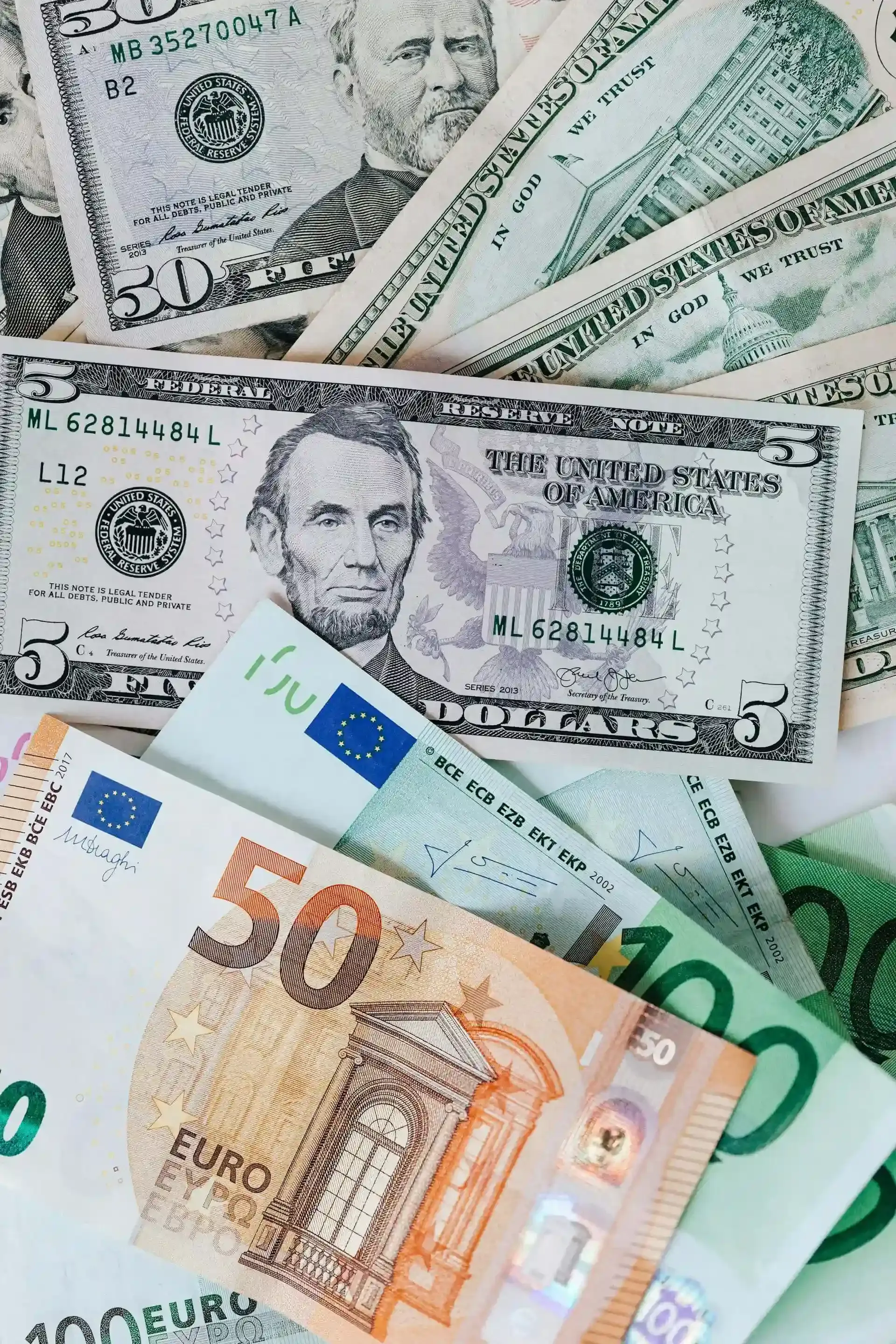travel hacks
Minimieren Sie Ihre Ausgaben im Ausland mit diesen Tipps zum Geldwechsel
Lassen Sie sich nicht durch schlechte Wechselkurse entgehen!
Bei der Vorbereitung einer Auslandsreise ist eine wichtige Entscheidung, wo Sie Ihr Geld umtauschen und wie viel Sie wechseln. Obwohl bargeldlose Zahlungen in vielen internationalen Reisezielen immer üblicher werden, ist es immer noch ziemlich wichtig, Bargeld dabei zu haben. Lassen Sie uns einige Überlegungen untersuchen, die Sie möglicherweise anstellen, wenn Sie entscheiden, wo Sie Ihr Geld umtauschen, wann Sie es wechseln und wie viel Sie wechseln.

Barzahlungen vs. Kreditkartenzahlungen
Da bargeldlose Zahlungen weltweit immer beliebter und üblicher werden, bevorzugen viele Menschen im Alltag lieber die einfache Nutzung von Kreditkarten – und diese Vorliebe wird sich wahrscheinlich auch auf ihre Zahlungsgewohnheiten bei internationalen Reisen ausweiten.
Kreditkarten- und bargeldlose Zahlungen sind zwar praktisch, es ist jedoch wichtig zu beachten:
- Die Wechselkurse bei Kreditkarten sind in der Regel viel schlechter als beim Geldwechsel
- Die meisten Kreditkarten erheben eine Transaktionsgebühr für Fremdwährungstransaktionen
Dies bedeutet, dass Sie bei Zahlungen im Ausland mit Ihrer Kreditkarte höchstwahrscheinlich mehr bezahlen, als wenn Sie bar bezahlen würden.
Natürlich sind die Tarife möglicherweise nicht so gut und Sie zahlen unter Umständen mehr als nötig. Allerdings sind mit der Zahlung per Kreditkarte auch Vorteile wie das Sammeln von Meilen oder Cashback verbunden, abhängig von den Konditionen Ihrer Kreditkarte.
Wenn Sie mit Kreditkarte bezahlen, wählen Sie immer die Landeswährung. So können Sie Verluste durch ungünstige Wechselkurse und Währungsumrechnungsgebühren minimieren!
Verwenden Sie digitale Geldbörsen, um Wechselkurse und Gebühren zu sparen
Wenn Sie bargeldlos bezahlen, vor allem aus Bequemlichkeit und weniger, um Meilen oder Kreditkartenpunkte zu sammeln, kann die Nutzung einer digitalen Geldbörse eine gute Option sein.
Heute gibt es viele digitale Geldbörsen wieRevolut oder WeiseDamit können Sie mehrere Währungen gleichzeitig nutzen. Diese Dienste bieten in der Regel wesentlich günstigere Wechselkurse als normale Kreditkarten.
Sollten Sie Bargeld im In- oder Ausland umtauschen?
Wenn Sie vorhaben, Bargeld zu wechseln, fragen Sie sich vielleicht, ob die Kurse günstiger sind, wenn Sie das Geld zu Hause oder nach Ihrer Ankunft am Zielort wechseln.
Nun, es hängt wirklich davon ab, wohin Sie reisen. Obwohl allgemein angenommen wird, dass die Kurse günstiger sind, wenn Sie das Geld im Ausland umtauschen, ist dies nicht immer der Fall.
Wenn Sie zu Hause Geld wechseln, ist es viel einfacher, nach den besten Wechselkursen zu suchen. Wenn Sie andererseits mit Ihrem Reiseziel nicht vertraut sind, können Sie möglicherweise nicht immer einen Geldwechsler finden und es kann für Sie schwieriger sein, die besten Wechselkurse zu finden.
Ein Vorteil des Bargeldumtauschs im Ausland ist, dass es dort in der Regel kleinere Nennwerte gibt, was den täglichen Gebrauch wesentlich einfacher machen kann. Andererseits ist es wichtig, auf Falschgeld zu achten – stellen Sie sicher, dass Sie sich für den Bargeldumtausch an ein seriöses und autorisiertes Unternehmen wenden.
Und selbst wenn Sie zu dem Schluss kommen, dass es besser wäre, Ihr Geld gleich bei der Ankunft am Zielort zu wechseln, ist es sehr zu empfehlen, dass Sie zumindest vorher etwas Bargeld wechseln, damit Sie nicht stranden, falls Sie bei Ihrer Ankunft keinen Geldwechsler finden.
Geldumtausch im Ausland vs. Geldautomatenabhebungen
Natürlich besteht auch die Möglichkeit, im Ausland an Geldautomaten Geld abzuheben, falls Ihnen das Bargeld ausgeht. Geldautomatenabhebungen sind definitiv bequemer und zuverlässiger, als einen Geldwechselservice aufzusuchen.
Allerdings sind Abhebungen am Geldautomaten nicht immer zum besten Kurs, und je nach Bank können für Abhebungen am Geldautomaten zusätzliche Gebühren anfallen.
Schlechteste Orte zum Geldwechseln: Vermeiden Sie den Bargeldwechsel an diesen Orten
Viele Menschen entscheiden sich aufgrund der Bequemlichkeit dafür, Bargeld am Flughafen oder im Hotel umzutauschen. Und das ist nicht nur bequem, sondern auch zuverlässig und Sie müssen sich keine allzu großen Sorgen um Falschgeld machen.
Aber die Wechselkurse am Flughafen und im Hotel sind oft sehr schlecht. Diese Orte bieten in der Regel einige deram schlimmstenWechselkurse. Und vielleicht sind Wechselkurse nicht so wichtig, wenn Sie nur einen kleinen Geldbetrag umtauschen.
Sparen Sie Geld auf Ihren Reisen mit einer Nomad Travel eSIM
Neben dem Geldwechsel gibt es viele andere Möglichkeiten, wie SieSparen Sie Geld, auch bei internationalen Reisen.
Eine der einfachsten Möglichkeiten, bei internationalen Reisen Geld zu sparen, istVermeidung internationaler Roaming-Kostenindem Sie sich eine Reise-eSIM zulegen. Reise-eSIMs bieten Ihnen internationale Konnektivität zu nahezu ortsüblichen Kosten und ersparen Ihnen den Aufwand, eine physische SIM-Karte austauschen zu müssen.
Nomad bietetReise-eSIMs in über 200 Reisezielen weltweitzu Preisen ab nur 1,10 USD/GB. Und wenn Sie zu mehreren Zielen reisen, bietet Nomad auch eine Vielzahl regionaler Tarife an, mit denen Sie auf Reisen durch die verschiedenen Länder eine unterbrechungsfreie Verbindung genießen können.
Wenn Sie Ihren Nomad-Empfehlungscode an Ihre Freunde weitergeben, erhält Ihr Freund 5 $ Rabatt auf seinen ersten Einkauf (gilt nur für Pläne ab 10 $). Sie erhalten ebenfalls 5 $ Rabatt auf Ihren nächsten Einkauf (gilt nur für Pläne ab 10 $).

